Everyone knows that using cigarettes is bad for your body. But did you know that tobacco can help cause some serious problems with your dental health? Here are six surprising effects of tobacco on your teeth and gums.
1. Creates plaque and calculus
Chemicals in tobacco products affect saliva flow in the mouth, making it easier for oral bacteria to stick to teeth and gums. Filmy, bacteria-laden plaque can develop on teeth and along the gum line. If not removed daily, it can harden into calculus, a substance so hard it requires a professional cleaning to remove. Smokers are three to six times more likely to develop gum disease or periodontal disease, which can attack roots and cause teeth to fall out. Even smokeless tobacco products can irritate gum tissue, causing gums to loosen around teeth, making it easier for bacteria to settle in and develop decay.
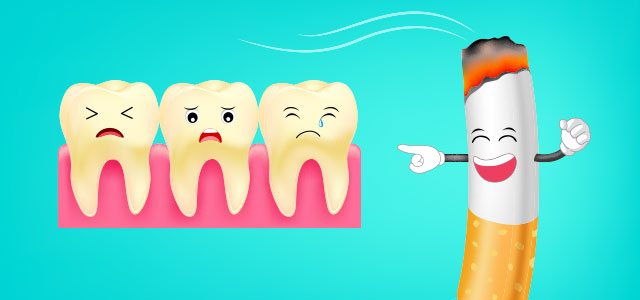

2. Tooth Decay
Tobacco and tobacco smoke can do some serious damage in your mouth, but most people think of oral cancer and gum issues. While those shouldn’t be overlooked, not many people associate smoking and tobacco use with the kind of tooth decay dentists often see in their patients. Large cavities that exist around the gum line can lead to infections and weak teeth, which can cause breaks down the road. Broken teeth will need to be repaired, which can be costly and, in many cases, painful.


3. Your teeth will get stained yellow.
Probably the biggest change after smoking or chewing tobacco over a long time is the loss of whiteness on your teeth. In healthy teeth, the enamel is translucent but white. A smile full of bright, white teeth is something everyone loves to see. But smoking or chewing can slowly add a sickly yellow color to your teeth, and a bad breath may occur. Smoking will also stain dental bridges, dental implant restorations, and dentures.
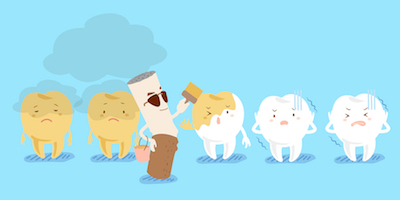

4. You have an increased risk of gum disease, and treatments will be less effective.
Gum disease (also called periodontal disease) is caused by the same harmful bacteria behind tooth decay. When this bacteria lives on your gums, it irritates the gum tissue to create a condition called gingivitis. If left untreated, the bacteria can actually infect your gums, destroy jawbone, and eventually cause your teeth to fall out. People who use cigarettes are at a much higher risk for getting gum disease. Tobacco irritates gums, which can cause your gums to pull away from teeth and create pockets. Also, gum disease treatments like root planing and scaling tend to be less effective with smokers.
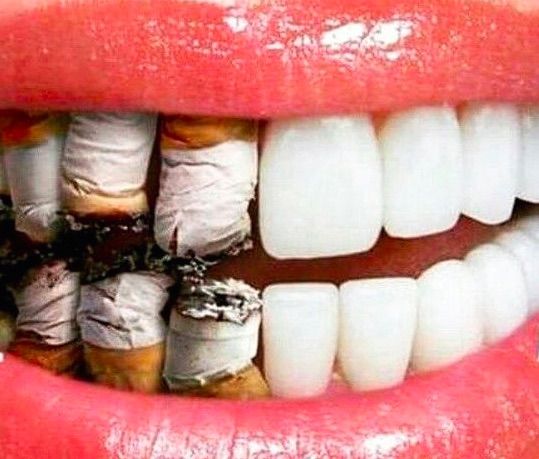

5. Interferes with blood circulation
Smoking affects the normal function of gum tissue, causing infections and restricting blood flow. It also delays healing after oral surgery for dental implants, tooth extraction or treatment of gum disease. This is why we tell our patients to avoid smoking cigarretes the same day that operation is done.


6. You have a higher risk of oral cancer in your gums, which can cause your teeth to fall out.
The link between tobacco use and cancer is completely understood and accepted these days. While lung cancer is a major concern for smokers, the smoke can also help cause cancer in your cheeks, lips, and gums. When cancerous tumors start to grow in your gums, they can put you at a much higher risk of having teeth fall out.
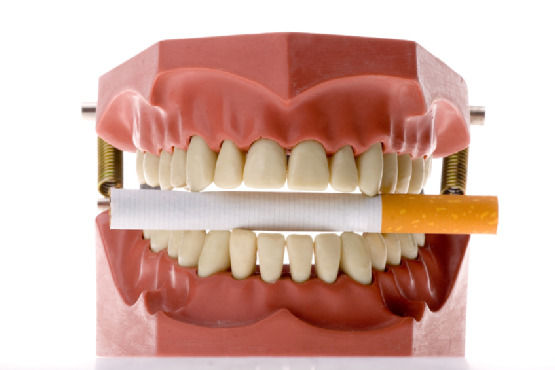

Treatment solutions
If you smoke or use tobacco products, reduce the risk of oral health problems by brushing twice daily, before breakfast and before bedtime, and floss once each day. Schedule regular appointments, as directed by your dentist, for professional teeth cleanings and checkups. If possible, quit smoking or at least cut down. Studies show that you will decrease the risk of oral cancer or lung cancer if you stop smoking.

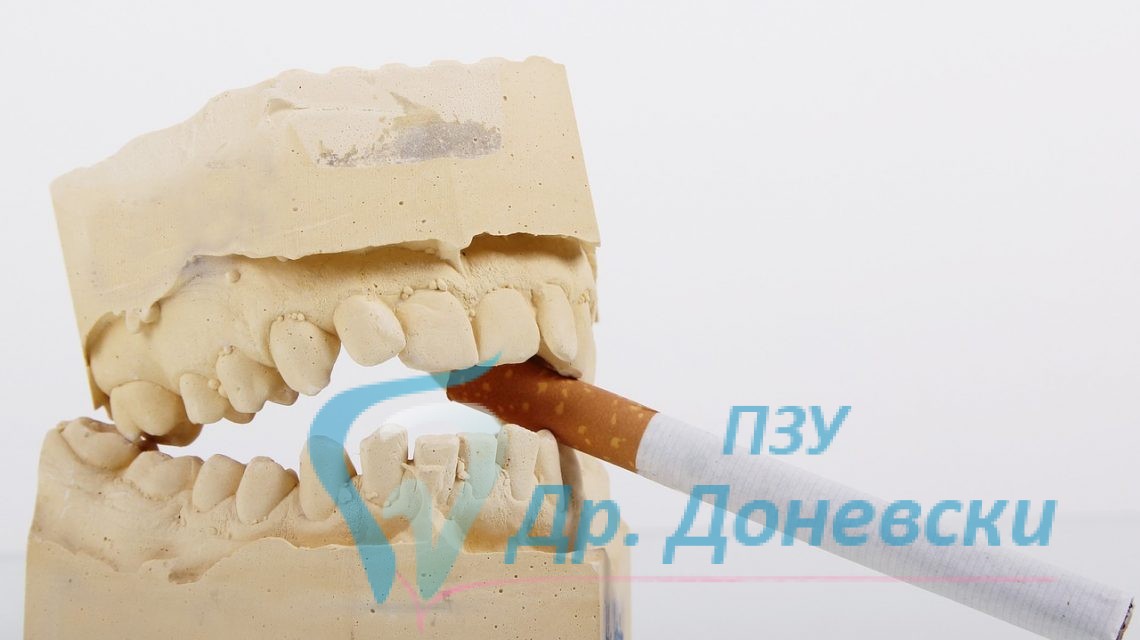

What Causes Bad Breath?
[…] Smoking cigarettes not only cause bad breath, they can create oral cancers, stain teeth and irritate your gums. Consider a tobacco free lifestyle to reduce the negative effects. […]